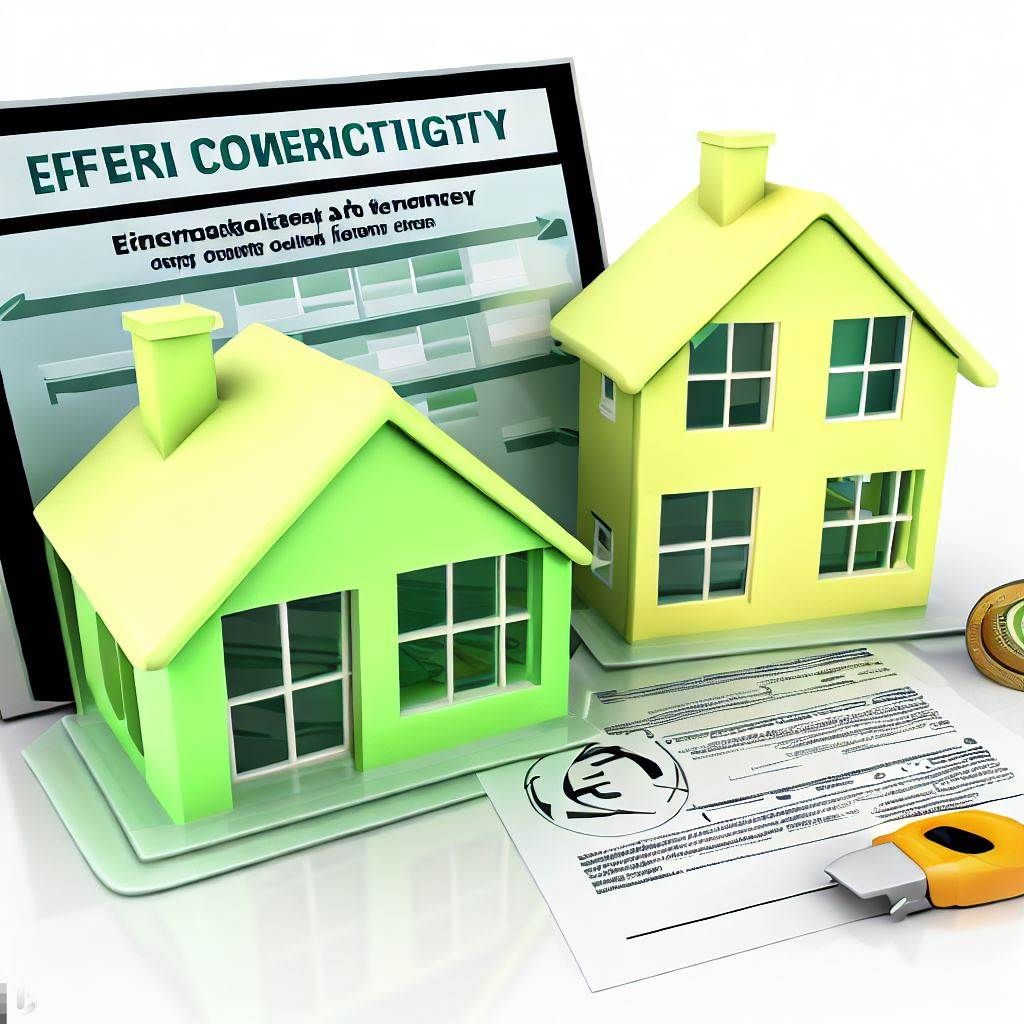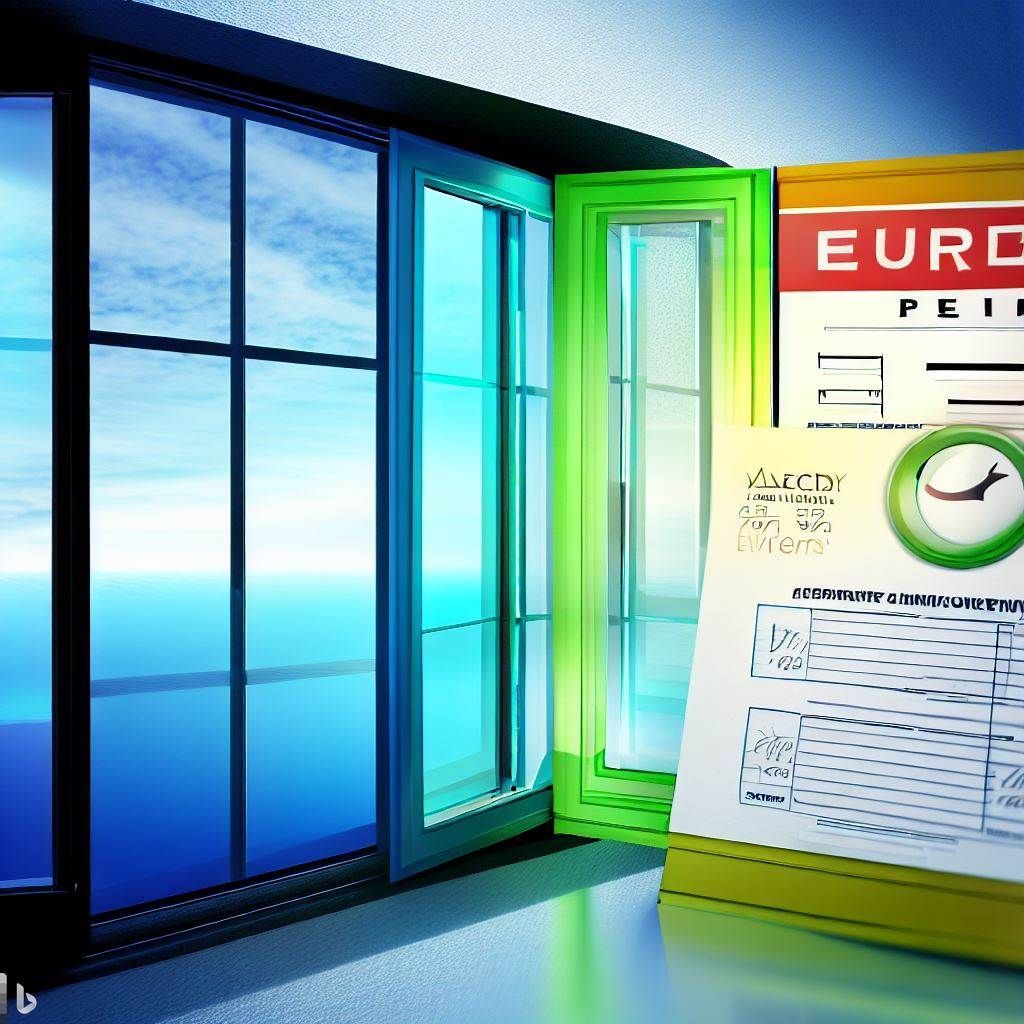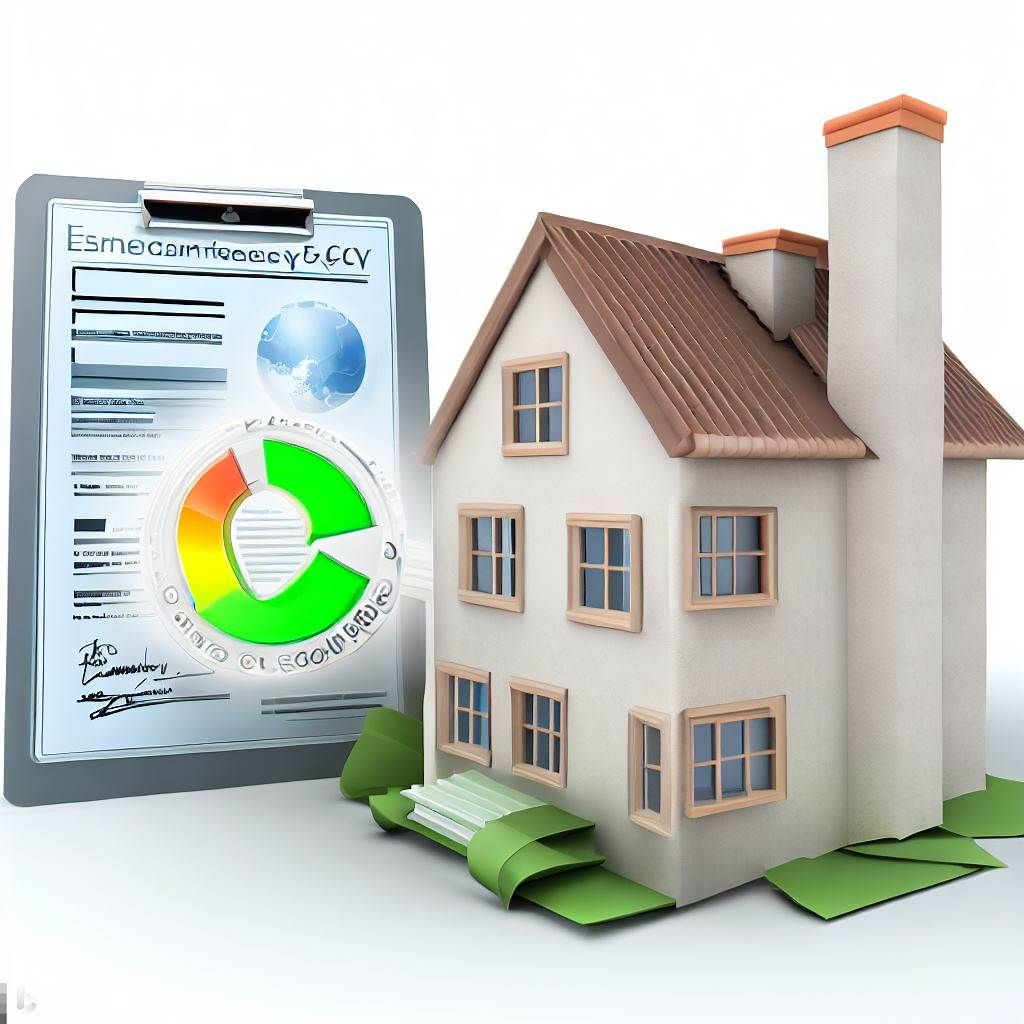Understanding the Benefits of an Energy Performance Certificate
An EPC Is A Legal Requirement When you Sell Or Rent A Property In The UK

If you’re planning to sell or rent your property, an Energy Performance Certificate (EPC) is an important document to obtain. It provides valuable information about the energy efficiency of your property, which can have a significant impact on its value, as well as its appeal to potential buyers or tenants. In this article, we’ll take a closer look at the benefits of an EPC, how it is assessed and graded, the legal requirements for obtaining one, and how you can use it to improve energy efficiency in your property.
What is an Energy Performance Certificate (EPC)?
An Energy Performance Certificate (EPC) is a document that assesses the energy efficiency of your property. It gives a rating of how energy-efficient the property is on a scale of A (most efficient) to G (least efficient). An EPC also provides recommendations for improving the energy efficiency of the property and lowering energy bills.
The purpose of an EPC
The purpose of an EPC is to provide potential buyers or tenants with important information about the energy efficiency of the property. This allows them to make informed decisions about the property and how much they are likely to spend on energy bills. An EPC is also useful for property owners who want to improve the energy efficiency of their property and reduce their carbon footprint.
How EPCs are assessed and graded
EPCs are assessed by qualified energy assessors who visit the property to collect data on its features, such as the age and type of construction, heating systems, insulation, and windows. The data is then analysed using a software tool to generate an energy efficiency rating. Properties that are more energy-efficient will have a higher rating, while those that are less efficient will have a lower rating.
The assessment process is usually quick and non-invasive, with assessors taking measurements of the property and asking questions about the heating and insulation systems. They may also take photographs of the property to include in the EPC report.
It is important to note that EPCs are not just for residential properties. Commercial properties also require an EPC if they are being sold or rented out.
The benefits of having an EPC
Having an EPC can be beneficial for both property owners and potential buyers or tenants. For property owners, an EPC can help them identify areas where they can improve the energy efficiency of their property, which can lead to lower energy bills and a reduced carbon footprint. It can also make their property more attractive to potential buyers or tenants who are looking for an energy-efficient home or office.
For potential buyers or tenants, an EPC provides valuable information about the energy efficiency of the property they are considering. This can help them make an informed decision about the property and its running costs, which can be a significant factor in their decision-making process.
The legal requirements for EPCs
In the UK, it is a legal requirement for all properties that are built, sold, or rented to have a valid Energy Performance Certificate. The EPC must be obtained before the property is marketed for sale or rent, and it must be made available to any potential buyers or tenants. Failure to obtain an EPC can result in financial penalties.
It is important to note that an EPC is valid for 10 years from the date it is issued. If significant changes are made to the property, such as an extension or the installation of a new heating system, a new EPC may be required.
Conclusion
In conclusion, an Energy Performance Certificate is an important document that provides valuable information about the energy efficiency of a property. It can help property owners identify areas for improvement, and it can help potential buyers or tenants make informed decisions about the property they are considering. With the legal requirement for all properties to have a valid EPC, it is important for property owners to ensure that they have one in place before marketing their property for sale or rent.
Benefits of an Energy Performance Certificate
An Energy Performance Certificate (EPC) is a document that provides information about the energy efficiency of a property. It rates the property on a scale from A to G, with A being the most energy-efficient and G being the least. While an EPC is a legal requirement for most properties that are sold or rented in the UK, it also offers several benefits to property owners and tenants.
Improving energy efficiency
One of the primary benefits of an EPC is that it provides recommendations for improving the energy efficiency of your property. These recommendations are tailored to your property's specific needs and can help you identify areas where you can make improvements. For example, the recommendations may include installing energy-efficient light bulbs, improving insulation, upgrading to a more efficient heating system, or adding renewable energy sources.By implementing these recommendations, you can significantly reduce your energy consumption and lower your carbon footprint. This not only benefits the environment but can also save you money on your energy bills in the long run.
Reducing energy bills
By implementing the recommendations outlined in the EPC, you can significantly reduce your energy bills. This can make your property more affordable and attractive to potential buyers or tenants, as energy bills are a significant cost for many households. Moreover, by reducing your energy bills, you can free up resources to invest in other areas of your property or business.
Increasing property value
Improving the energy efficiency of your property can increase its value, as it makes it more attractive to potential buyers or tenants. Properties that are more energy-efficient are also likely to have a higher rental yield, as tenants are willing to pay more for a property with lower energy bills. Additionally, energy-efficient properties are often seen as more modern and desirable, which can make them stand out in a competitive market.
Attracting potential buyers and tenants
Having a valid EPC can also attract potential buyers or tenants, as it provides important information about the property’s energy efficiency. This can help to differentiate your property from others on the market, and make it more appealing to eco-conscious buyers or tenants. By highlighting the energy-saving features of your property, you can also demonstrate your commitment to sustainability and attract like-minded individuals.
Contributing to environmental sustainability
An EPC can also contribute to environmental sustainability, as it encourages property owners to improve the energy efficiency of their property. By reducing energy consumption and carbon emissions, you can play your part in mitigating climate change and protecting the environment. Moreover, by setting an example for others to follow, you can help to create a culture of sustainability that benefits everyone.In conclusion, an Energy Performance Certificate offers a range of benefits to property owners and tenants. By improving energy efficiency, reducing energy bills, increasing property value, attracting potential buyers and tenants, and contributing to environmental sustainability, an EPC can help you achieve your goals and make a positive impact on the world around you.
How to Obtain an Energy Performance Certificate
Obtaining an Energy Performance Certificate (EPC) is an essential step for anyone looking to sell or rent out their property. An EPC provides important information about the energy efficiency of a property and can help potential buyers or tenants make informed decisions about their energy bills and carbon footprint.
Finding a Qualified Energy Assessor
When it comes to finding a qualified energy assessor, the government’s register of energy assessors is a great place to start. This register lists all qualified assessors in your area and provides information about their qualifications and experience. You can also ask for recommendations from friends or family members who have recently obtained an EPC.
It is important to choose a qualified energy assessor who has experience working with properties similar to yours. This will ensure that they have the knowledge and expertise necessary to provide an accurate assessment of your property’s energy efficiency.
Preparing Your Property for Assessment
Before the energy assessor visits your property, there are a few things you can do to prepare. First, make sure that all areas of the property are accessible, including any loft spaces or basements. This will allow the assessor to fully assess your property’s energy efficiency.
You should also gather any relevant documentation, such as proof of ownership and any planning permissions or building regulations. This will help the assessor to understand the history of the property and any changes that may have been made to its construction or heating systems.
Finally, it is important to have relevant information about your property’s construction and heating systems. This might include details about the type of insulation used, the age of the boiler, or the efficiency of any renewable energy systems.
Understanding the EPC Report and Recommendations
Once the assessment is complete, you will receive an EPC report that outlines the energy efficiency rating of your property and provides recommendations for improvement. The rating is based on a scale of A to G, with A being the most energy efficient and G being the least.
The report will also provide recommendations for improving your property’s energy efficiency, such as installing loft insulation, upgrading your heating system, or switching to renewable energy sources. It is important to read the report carefully and understand the recommendations, as they can help you to improve the energy efficiency of your property and reduce your energy bills.
Overall, obtaining an EPC is an important step for anyone looking to sell or rent out their property. By working with a qualified energy assessor and following their recommendations, you can improve the energy efficiency of your property and save money on your energy bills.
Implementing Energy Efficiency Improvements
Prioritising recommended improvements
To improve the energy efficiency of your property, you should prioritise the recommendations outlined in the EPC report. This will help you to focus on the improvements that will have the greatest impact on your energy bills and carbon footprint.
Exploring financial incentives and grants
There are a range of financial incentives and grants available to support energy efficiency improvements, such as the Green Homes Grant and the Renewable Heat Incentive. These can help you to implement the recommended improvements and reduce the upfront cost.
Monitoring and maintaining energy efficiency
Once you have implemented energy efficiency improvements, it is important to monitor and maintain the efficiency of your property. This will help you to ensure that you continue to save money on energy bills and reduce your carbon footprint over time.
Conclusion
An Energy Performance Certificate is an important document for property owners who want to improve the energy efficiency of their property and reduce their carbon footprint. It provides valuable information about the energy efficiency of the property and recommendations for improvement. By implementing these recommendations and exploring financial incentives, you can reduce your energy bills, increase property value, and contribute to environmental sustainability.










